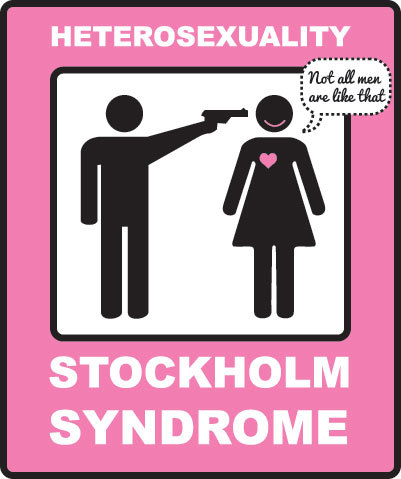Have you heard of trauma bonding otherwise known as Stockholm syndrome? Wikipedia defines it as a condition in which hostages develop a psychological bond with their captors during captivity. Trauma bonding had been with modern man for a while but it wasn’t until 1973 that it was so labeled, following a foiled robbery attempt of a bank in Stockholm Sweden, where the robbers took 4 employees of the bank hostage for 6 days. During their captivity, and after their release, the hostages- 3 women and 1 man were empathetic, benevolent and sympathetic towards their captors and refused to give evidence against them. One even said she trusted her captors more than the police that were trying to negotiate their freedom.
The syndrome though not classified as a mental disorder is recognized by psychiatrists and has overtime been widened to include victims of domestic abuse, child abuse, sex trafficking, concentration camp prisoners, prisoners of war, incest survivors, cult members, and people in toxic family relationships.
where the victims of crimes perpetrated against them have positive feelings towards their abusers. It is said that the syndrome often occurs in cases where there is a wide power differential and the victims are largely dependent on their abuser who from time to time render small acts of kindness and warmth towards them which they (victims) interpret as evidence of the abusers inherent goodness and an atonement for the evils and ills committed by them.
When I read up on the syndrome, I finally began to have a little understanding about the mindset of people especially women who refuse to leave an abusive relationship. They make excuses for their abusers and take up arms against family and friends who seek to rescue them. Hitherto, it had never made sense to me how people will make excuses for their abusers especially where physically assault was prevalent. I still find it difficult to understand or accept a situation where a man will beat his wife black and blue until she is rescued by neighbors and still sleep with the same wife and how that wife will refuse to report to the authorities or leave when given the opportunity to escape. She would portray a picture of bliss in the relationship, have a negative attitude towards neighbors, family and friends who have a knowledge of the abuse and generally tell everyone who cares, to mind their businesses when advised to leave the relationship.
It is noteworthy that not all people in an abusive relationship are suffering from Stockholm Syndrome. In deed some stay in abusive relationships for different reasons such as revenge, money, least of all is a sense of misplaced love and Psychiatrists have identified the following as some of the signs of the syndrome
a. Little or no effort to escape from their victims or surroundings and if they are forcibly removed from their captors, exhibit a willingness or yearning to be held captive by their abusers and to return to the abusive situation.

b. Excuses justifying the abuse and rationalizing their abuser’s actions which results in not holding them accountable for their actions.
c. Appeasement of their abusers by pandering to their whims and caprices in the hope that the recognition of their loyalty in-spite of the abuse will lead to its end.
d. Casting their abusers in the mould of a victim and taking on the attitude of a martyr whose life work is to rescue the abuser.
e. Lack of self-esteem evidenced by an unwillingness to detach from their abusers and heal thereby sacrificing their wellbeing.
It is said that whilst some people are by their background and temperament more susceptible to the syndrome, anybody can be a victim if the right circumstances exists. It is postulated that the syndrome is actually a coping mechanism used by the victims to cope with the trauma in their lives and that whilst they may shun help outwardly, they are unconsciously crying to be delivered from their situation.
In the light of this information, in my dealings with people who suffer from this syndrome- people whose state of mind and ideology I find
rather perplexing, I have learnt for my own good, to be emotionally detached from their affairs, not taking offense by their support of their abusers or at the choices they make that put them at risk. I have learnt to listen when they have the desire to talk without vilifying their abuser but also to tell them the truth objectivity which helps them look factually at what is wrong in the relationship.
eI am learning to understand that there is an need mostly developed from childhood or due to some traumatic experience that makes the victim stay in that abusive relationship (eg a need to be loved, noticed or wanted) and to help the victim identify that need so she or he can understand why they are unreasonably committed to the relationship.
Recent research shows that most victims have an addiction to the feelings their abusers wrought in them. The interplay of good and bad emotions created by their victim’s actions is like a drug addiction. The bad actions are like withdrawal symptoms whilst acts of kindness are likened to taking cocaine which diminishes or wipes away the memory of the abuse. So if you have a loved one who keeps going back to their abuser, they just may have the syndrome and like every addiction, it takes time- lots of it and patience to wean them.
May we never hate ourselves so much that we love the people that hurt us.

